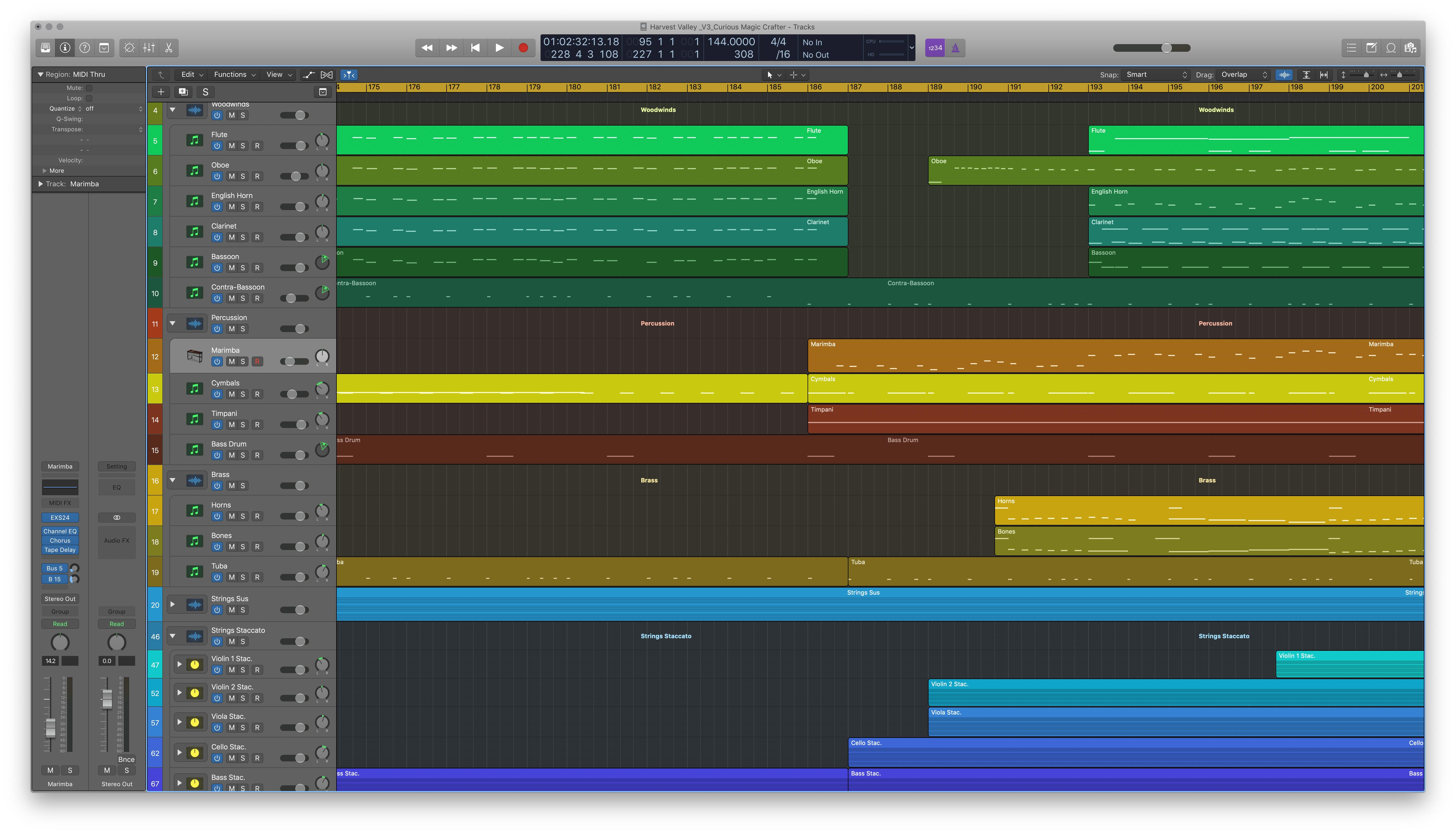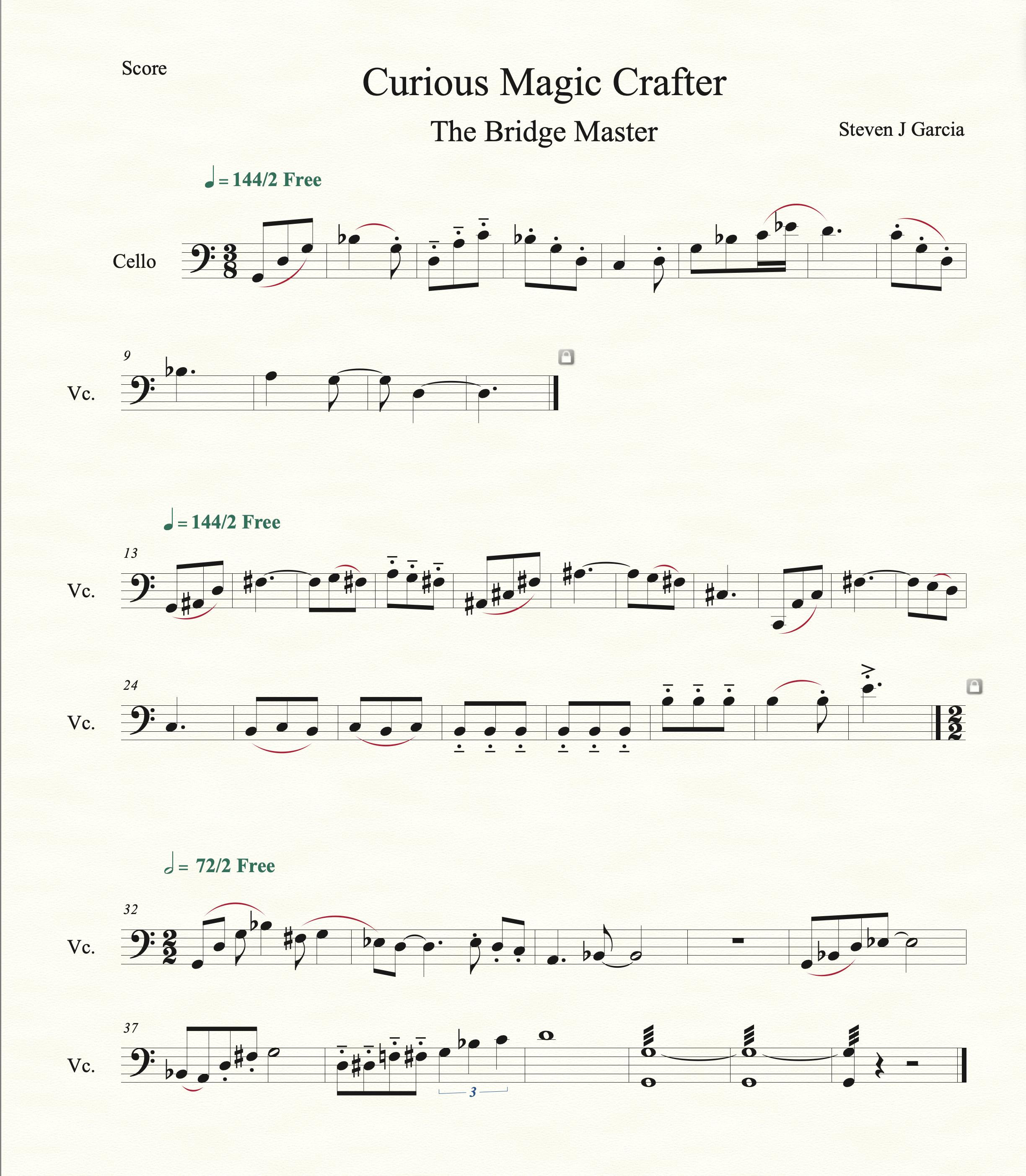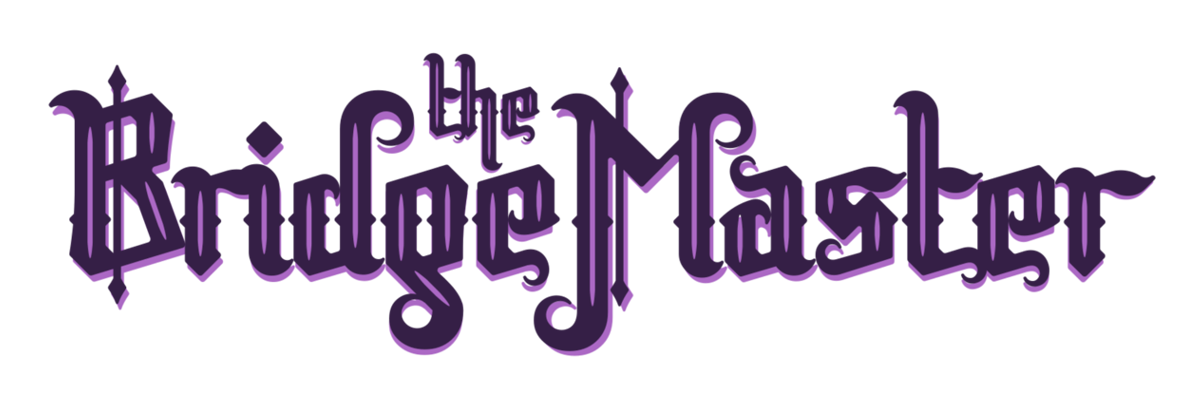Music in the World of The BridgeMaster
Over the spring time we had the opportunity to explore more of the world in The BridgeMaster. Now that we have our base mechanics on stable grounds our next steps were to create a more immersive experience for our players.
In our past devlog posts we focused on bugs, gameplay, and progression. We have made strides in both the art and audio departments over the past few months and figured we would give you a bit of a “behind-the-scenes” look into the music development.
Our main goal was to fix issues that players felt were inherent in the previous builds. Mainly stemming from an issue of musical energy not matching gameplay energy. There were also issues with improper looping sections throughout the soundtrack. With those in mind Steven J Garcia, composer for the game, went back to the drawing board.
The first question that needed answering was, “what type of world is The BridgeMaster.” The obvious is fantasy. The issue was what sort of fantasy world was it. We wanted to convey a sense of fantastical adventure but it needed to satisfy the parameters of a puzzle game as well.
After a few trial and error ideas thrown around we finally settled on a more classical fantasy feel. The biggest influences for our world would be Paul Dukas’s The Sorcerer's Apprentice, Camille Saint-Saens Danse Macabre, and Modest Mussorgsky’s Night on Bald Mountain. For any of you symphonic music fans out there these works should be familiar. Dukas’s work was a major influence for John William’s score for Harry Potter.
The ever looming fear of too serious a tone and energy still worried our composer. Using an orchestration technique of having playful sounding instruments, such as the bassoon, play more of the driving musical lines helped prevent the aforementioned worries. 
Looking to add production value to our soundtrack we employed the services of Liann Garcia, a brilliant cellist. Though we live in a time where video game composers can get away with using MIDI instruments in a DAW (digital audio workstation) the addition of real musicians can be a real boost in quality. 
The final steps were to be sure and purposely compose sections of music that can loop for as long as we need them to and not break the sense of immersion. After the music was fully composed, mixed, and mastered we added them too FMOD for game implementation. This middleware software helps translate what the composer wishes to happen to our audio engineer without the need for the programmer to know a lot of musical terminology.
We hope you enjoy our changes and look forward to hearing your feedback. We next plan on continuing to develop gameplay and progression, as well as having major updates to the visuals of the game and narrative context. What would you like to see most? Leave a comment, or follow this profile to be notified of future updates. We look forward to sharing the next iteration with you in the near future!
Get The BridgeMaster
The BridgeMaster
A wholesome puzzle adventure in Bridgemancy
| Status | In development |
| Authors | Robert Ackley, Soreiany Khong, Andrew Hermus, R0nnie, HoningStoneArt, Acedio, Erink, InKahootsMS |
| Genre | Puzzle |
| Tags | 3D, Casual, Cute, Fantasy, Female Protagonist, Low-poly, Magic, Non violent, Singleplayer, Top-Down |
| Languages | English |
| Accessibility | Interactive tutorial |
More posts
- 2023 Review / 2024 PreviewJan 03, 2024
- Selected for the SIX Expo!Aug 31, 2023
- May '23 DevlogMay 29, 2023
- Showcase at Pacific Science CenterNov 26, 2019
- Game Jam Post-MortemNov 18, 2019
- Introducing: The BridgeMasterNov 14, 2019

Leave a comment
Log in with itch.io to leave a comment.